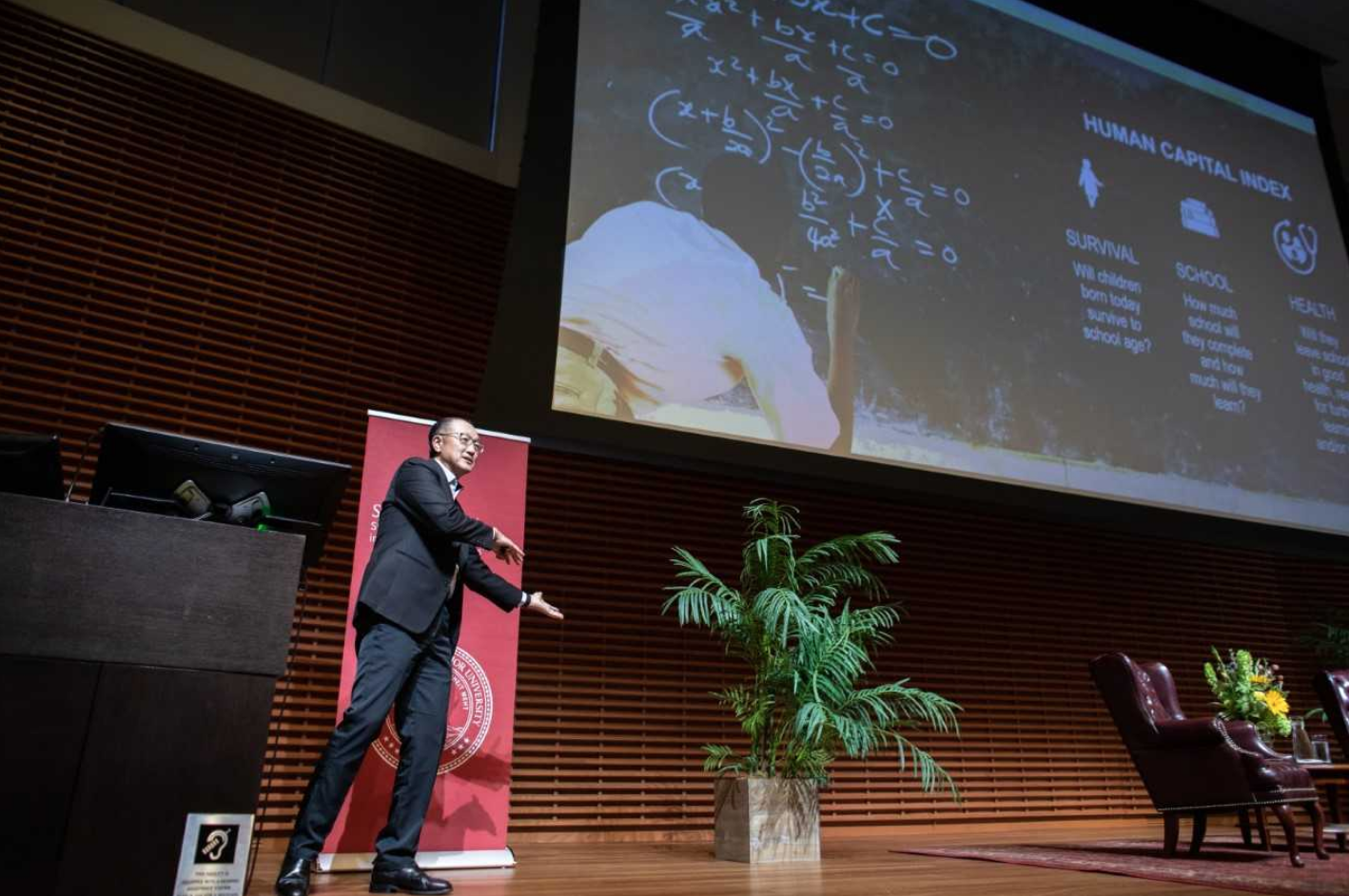In a Tuesday talk at CEMEX Auditorium, World Bank Group President Jim Yong Kim discussed the need for global investment in human capital with former Secretary of State Condoleezza Rice. Afterwards, The Daily engaged Kim in a roundtable discussion on the importance of harnessing disruptive technologies to aid the economic growth of developing countries.
The event was sponsored by the Stanford Institute for Innovation in Developing Economies (SEED).
Kim, who assumed his current position in 2012, said that one of the World Bank’s main priorities is ensuring that developing nations are not left behind or caught unaware by the effects of automation. This can mean anticipating and also preempting that impact.
“I think the biggest risk is that the developing countries will miss the technological revolutions that are happening elsewhere in the world,” Kim said.
While varying rates of technology adoption between different countries mean that developing ones might have more time to prepare for the arrival of disruptive technology, Kim stressed the need for investment in their human capital regardless. In order to incentivize global policymakers to approach the complex issue, Kim mentioned a new World Bank Human Capital Index, which ranks countries by the perceived results of their human capital investments.
“We want every single country on Earth to begin debating the quality of their investments in people,” Kim said.
In order to improve human capital, developing countries should devote effort toward not only education but also malnutrition and social support networks, Kim said. According to him, the issue of childhood malnutrition is particularly important because research shows it can lead to neurological issues later in life.
“[That research] really did support the message that we need to invest in education in all of the world if we want the economy to grow in the future,” said MBA candidate Erick Fuks, an audience member at the talk.
While improvement might take time, Kim suggested that technology could help speed up that process.
He added that he is also wary of the impact of increasing global income disparities.
“The vision of the future that I worry most about [is when the economically underprivileged] can see that they’re essentially left out of what so many other people are enjoying,” Kim said. “I think that could be the source of instability in economies and countries all over the world.”
In order to support growth in developing nations, he suggested creating venues for small- and medium-sized businesses to access capital as well as constructing accessible broadband infrastructure.
Another tool Kim listed as helping facilitate the World Bank’s goal of reducing extreme poverty was collaborative projects on emerging technologies with Silicon Valley firms; for example, artificial intelligence that can predict famines. To that end, he cited the Famine Action Mechanism, a joint effort between the World Bank and the United Nations — in cooperation with Microsoft, Google, Amazon and others — to develop methods of famine prevention and preparedness.
Kim also emphasized a need for innovators to be familiar with the particular circumstances of countries they want to help and to apply that knowledge toward effective product design. He cited the company Zipline, which has cooperated closely with the Rwandan government to deliver blood transfusions and vaccines throughout the country via drone, as an example of this being done well.
“If you don’t design your innovation specifically for the purpose of trying to make it work in poor countries, you often never get there,” Kim said.
When asked if and how corporate work with national governments would be held responsible for any downsides of their projects, Kim said that companies would be held to the equator principles for managing environmental and social risk if not to the Bank’s own internal accountability mechanisms.
“During the talk, I [could] clearly sense his sense of responsibility as a world citizen and his urgent desire to bring more attention to healthcare, education and poverty relief,” said audience member Lily Zimeng Liu ’21. “I was inspired by Kim when he reassured us of every individual’s potential by showing how far he’s come from [his own childhood] in the improvised South Korea [of the] 1950s.”
Contact Sean Chen at kxsean ‘at’ stanford.edu.
